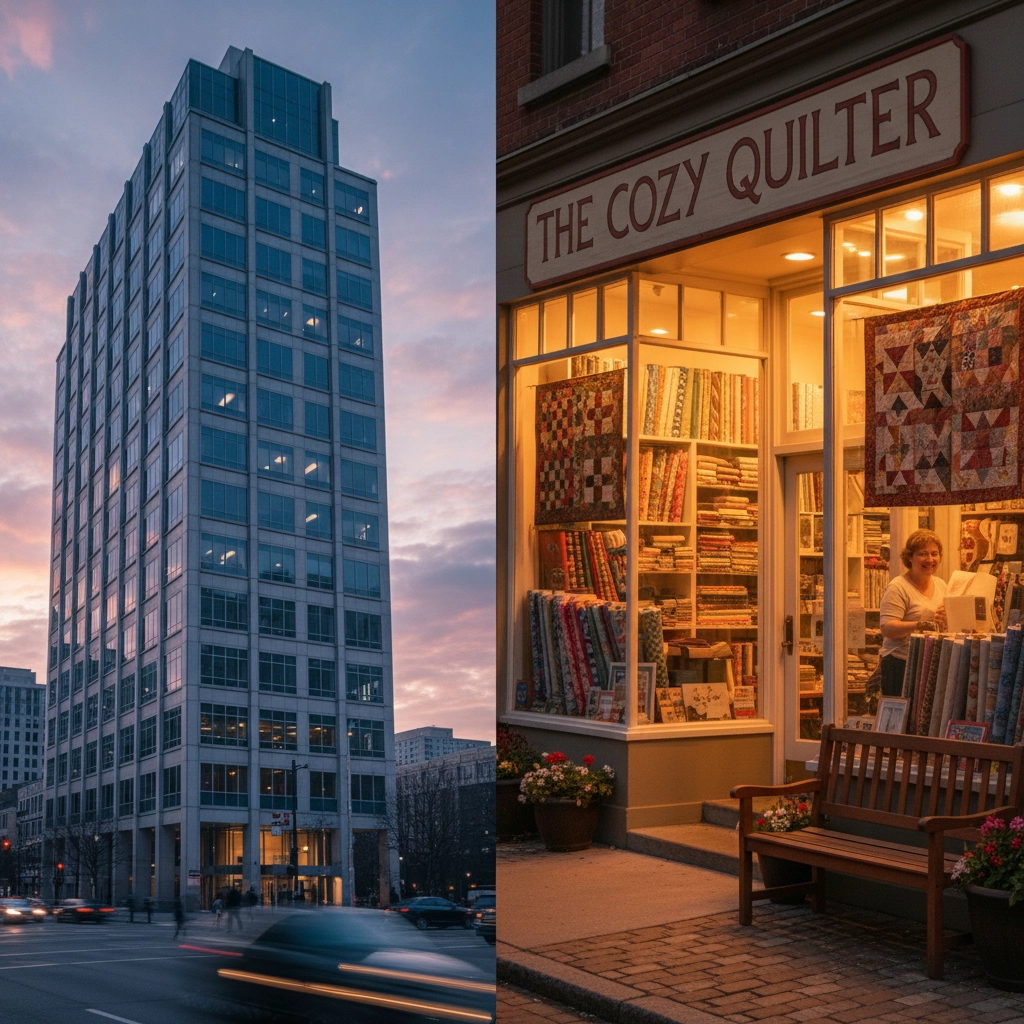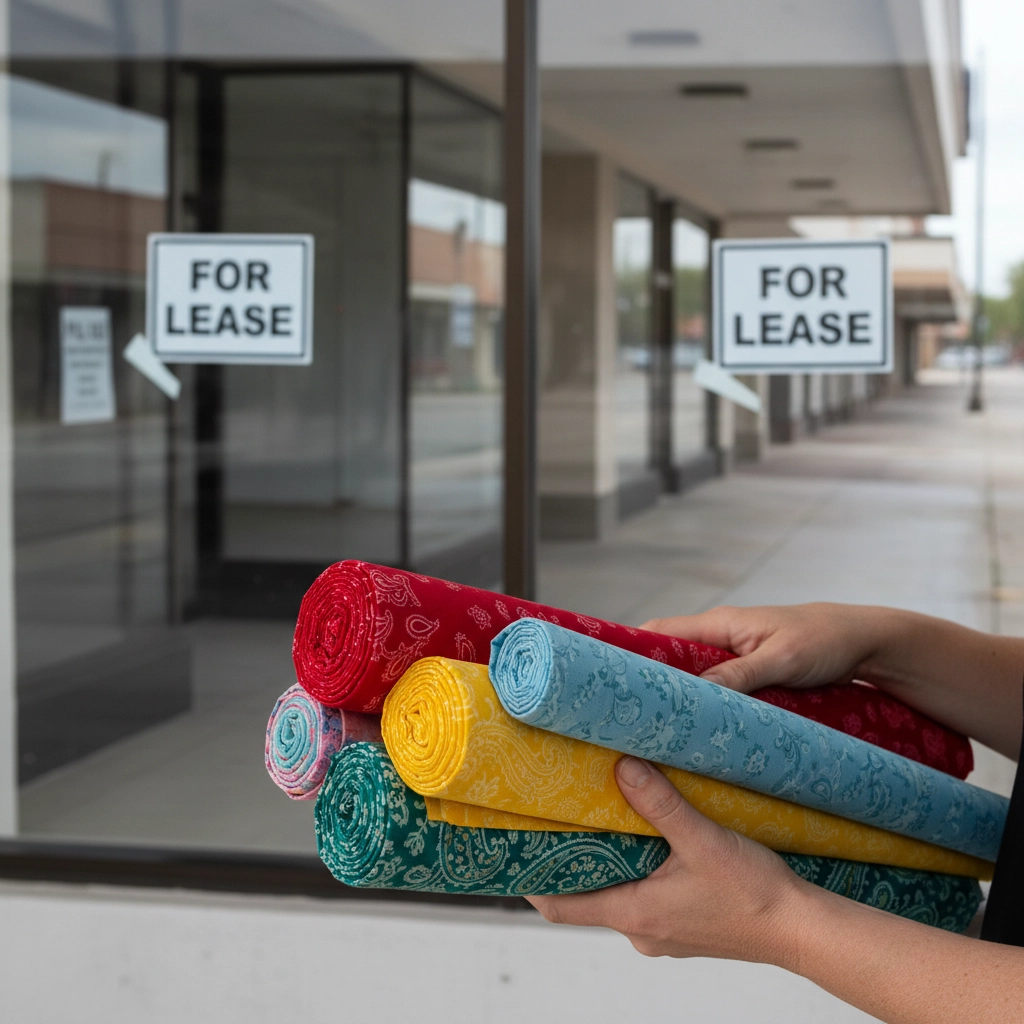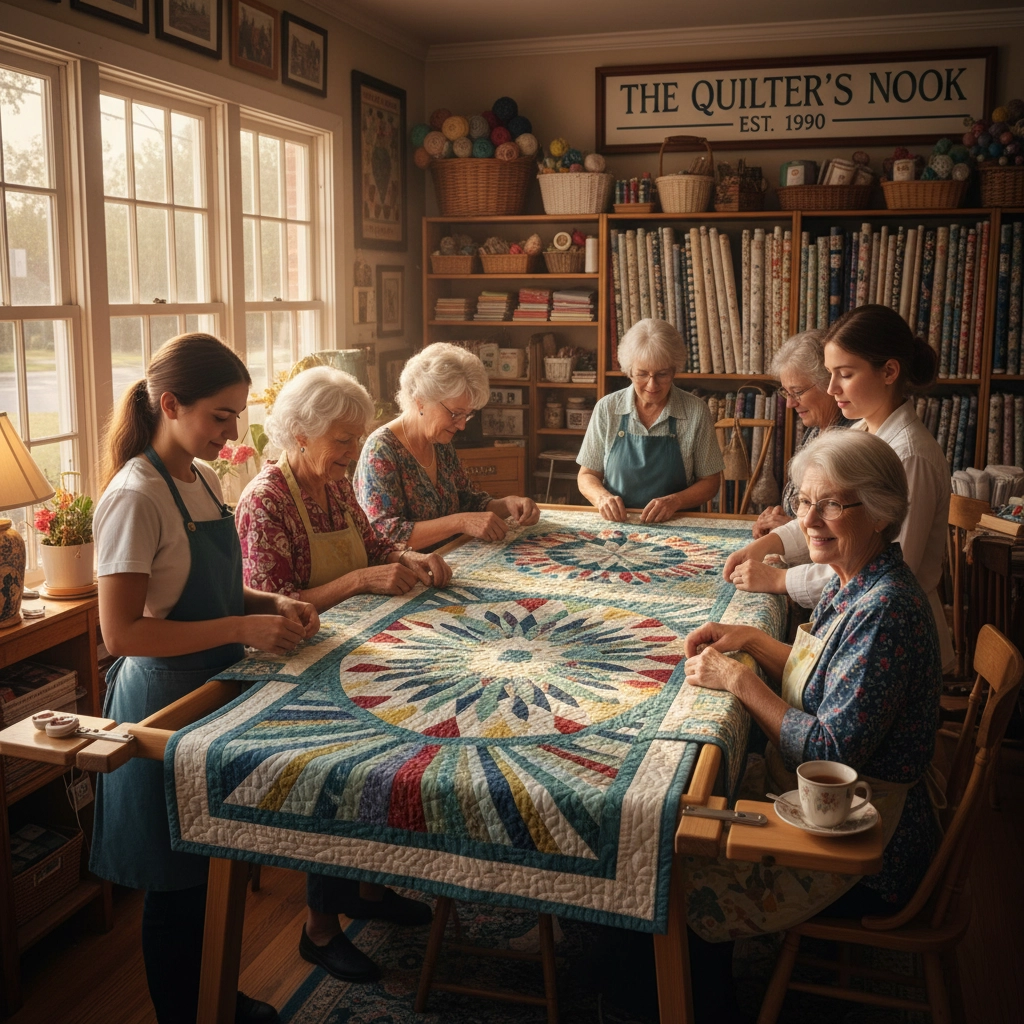
The Hard Truth: Small Quilt Shops, Economic Trends & The Fight To Stay Afloat
Hey everyone, James here. I recently had the chance to dive deep into some tough topics on the Stitch Fixer Podcast, and honestly, it's time we had a real conversation about what's happening in our industry. No sugar-coating, no corporate speak – just the truth about what small quilt shops are facing right now.
The "Too Small to Matter" Problem
Let's start with the elephant in the room: government support. You know what's frustrating? We're constantly told about all these programs designed to help small businesses. On paper, we qualify. We check the boxes, we fill out the forms, we jump through the hoops. But here's the reality – we don't generate enough revenue to actually get noticed.

Think about it: when the government talks about "small business support," they're usually thinking about businesses that employ 50+ people or generate millions in annual revenue. A typical independent quilt shop? We're lucky if we're pulling in $300K-500K annually, and that's before expenses eat up most of it. We're invisible in their metrics.
The programs exist, sure, but they're designed for businesses that are already successful enough to navigate complex application processes, hire consultants, or have dedicated staff to chase down funding opportunities. When you're a one or two-person operation running the register, managing inventory, teaching classes, and trying to keep the lights on, those "opportunities" might as well not exist.
The Legal Minefield We Navigate Daily
Here's something most customers don't realize – we're constantly walking on legal eggshells. Copyright issues, trademark concerns, licensing agreements, and vendor contracts create a maze that's getting more complex every year. One wrong move, one misunderstood contract clause, and we could be looking at legal bills that would shut us down overnight.
The big guys? They have legal teams. They have insurance policies that cover everything from copyright infringement to customer slip-and-fall accidents. Small shops like ours are operating on shoestring budgets where a single lawsuit – even a frivolous one – could end everything we've built.
And don't get me started on the constant dance around intellectual property. We love featuring beautiful quilts made with designer fabrics, but every photo we post, every pattern we recommend, every technique we demonstrate could potentially step on someone's legal toes. It's exhausting, and it stifles the creative community spirit that makes quilting so special.
Economic Realities That Keep Us Up at Night

The numbers don't lie, and they're not pretty. Inflation has hit us from every angle – rent, utilities, shipping costs, and wholesale prices have all skyrocketed. But here's the kicker: we can't just pass all those costs onto our customers. Why? Because our customer base is largely on fixed incomes, and they're feeling the pinch too.
Fabric costs have increased 20-30% over the past two years, but try explaining to a customer why that fat quarter they bought last month for $3.50 now costs $4.25. They see it as gouging, not survival. We're caught between vendors who are raising their prices and customers who are stretching every dollar.
The supply chain mess has created its own set of problems. We place orders months in advance, not knowing if we'll receive what we ordered, when we'll receive it, or what condition it'll be in. Cash flow becomes a guessing game when you can't predict inventory arrivals or customer demand.
The Corporate Veil Catch-22
Here's a legal reality that keeps many shop owners trapped: to generate the kind of revenue that might actually get us noticed by support programs, we'd need to scale up significantly. But scaling up means taking on debt, hiring employees, and increasing our legal exposure exponentially.
Many of us operate as sole proprietorships or small LLCs specifically to keep things simple and legal costs manageable. But this structure also means we're personally on the hook for everything. There's no corporate veil protecting our personal assets, no team of lawyers handling our compliance issues.
The irony? To get the protection and support that might help us grow, we'd need to already be successful enough that we don't need it. It's a system designed for businesses that have already made it, not for those of us fighting to stay afloat.
Fighting Back with Community and Creativity

But here's what the statistics and legal battles don't capture – the incredible resilience of our quilting community. When Joann's locations started closing, we didn't just sit around waiting for customers to find us. We got creative.
We've embraced online sales, not to compete with Amazon, but to serve our local customers better. We've started subscription boxes, virtual trunk shows, and online classes that connect us with quilters hundreds of miles away. We're using social media not just to sell, but to build genuine relationships with people who share our passion.
The community support has been incredible. Quilters understand what's at stake when their local shop struggles. They see us as more than retailers – we're the keepers of knowledge, the problem-solvers when projects go wrong, the cheerleaders when someone finishes their first quilt.
The Real Government Support We Need
Want to know what would actually help small quilt shops? It's not more loan programs we can't qualify for or tax credits that don't apply to our situation. We need:
- Simplified legal frameworks for small creative businesses
- Affordable group insurance options for micro-businesses
- Real protection from frivolous copyright claims
- Streamlined sales tax collection across state lines
- Support for local business networks and cooperatives
But here's the reality – we're not holding our breath waiting for government solutions. We're too busy finding our own ways to survive and thrive.
What This Means for Our Customers

I want to be transparent with you all. When you choose to shop at Countryside Quilts, you're not just buying fabric or supplies – you're making a statement about the kind of quilting community you want to support.
Every dollar spent with us stays in our local economy. It supports not just our shop, but the entire ecosystem of quilters, teachers, and artisans who depend on spaces like ours to connect and create. When you buy that quilt kit or sign up for a class, you're investing in keeping traditional skills alive in an increasingly digital world.
We know we can't compete on price with the big box stores or online giants. But we offer something they can't – expertise, community, and the kind of personal service that turns a frustrating project into a learning experience.
Moving Forward Together
The future of independent quilt shops isn't guaranteed, but it's not hopeless either. We're adapting, innovating, and finding new ways to serve our community. Some days are harder than others, and some months we wonder if we'll make it through.
But then a customer brings in their finished quilt to show us, or a beginner finally masters that tricky technique we've been teaching them, or someone finds exactly the fabric they've been searching for in our carefully curated collection, and we remember why we do this.
We're not just running a business – we're preserving a tradition, building a community, and keeping the art of quilting alive for the next generation. That's worth fighting for, even when the odds feel stacked against us.
The quilting industry is at a crossroads, and the choices we make now – as shop owners, customers, and community members – will determine what survives. We're committed to being part of the solution, one stitch, one customer, and one quilt at a time.

Leave a comment